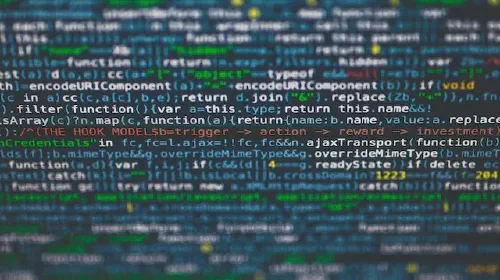Impact of Quantum Computing on Encryption: Vulnerabilities and Solutions
Salomon Kisters
Jul 13, 2023This post may contain affiliate links. If you use these links to buy something we may earn a commission. Thanks!
Today, we are going to dive into the fascinating world of quantum computing and explore its impact on encryption.
Quantum computing is an emerging field of technology that holds the potential to revolutionize various sectors, including encryption. Encryption plays a crucial role in securing sensitive information and protecting the privacy of individuals and organizations.
However, with the advent of quantum computers, traditional encryption methods face a significant challenge.
In this blog post, we will explain the basics of quantum computing, discuss the vulnerabilities of current encryption methods, explore potential solutions and countermeasures, and highlight the importance of keeping pace with this advancing technology.
Understanding Quantum Computing
Quantum computing is built upon the principles of quantum mechanics, a field of physics that deals with the behavior of matter and energy on a subatomic scale. Unlike classical computing that uses bits (represented as 0s and 1s) to process information, quantum computers utilize quantum bits, or qubits.
Qubits can exist in multiple states simultaneously, owing to a property called superposition. This ability allows quantum computers to perform vast numbers of calculations simultaneously, significantly enhancing their processing power compared to classical computers.
The Vulnerabilities of Traditional Encryption
Traditional encryption methods, such as the widely used RSA and AES algorithms, rely on the hardness of certain mathematical problems to ensure data security. These algorithms are based on the assumption that it would take an infeasible amount of time for classical computers to solve these problems. However, quantum computers have the potential to solve some of these problems at exponentially higher speeds, jeopardizing the security of sensitive information encrypted using these methods.
Breaking RSA Encryption
RSA encryption, named after its inventors Ron Rivest, Adi Shamir, and Leonard Adleman, is widely used for secure transmission of data over networks and is based on the difficulty of factoring large prime numbers. The security of RSA encryption lies in the fact that factoring large numbers is computationally intensive for classical computers.
Quantum computing, on the other hand, has the potential to break RSA by utilizing Shor’s algorithm. Shor’s algorithm leverages the ability of quantum computers to efficiently factor large numbers, rendering RSA vulnerable. Once a quantum computer capable of running Shor’s algorithm is developed, it could factor large numbers quickly, undermining the security provided by RSA encryption.
The Concerns Surrounding AES Encryption
Advanced Encryption Standard (AES) is a symmetric encryption algorithm used to protect classified information and secure electronic communications. AES is widely regarded as secure against classical computing attacks due to its key length and complexity. However, quantum computers pose a new threat to AES encryption.
Grover’s algorithm, a quantum algorithm named after Lov Grover, is capable of searching unsorted databases quadratically faster than classical algorithms. Grover’s algorithm can be used to reduce the complexity of a brute-force attack on AES encryption from 2^128 to 2^64, which is within the realm of what a powerful quantum computer could achieve. This reduced complexity raises concerns about the vulnerability of AES to potential quantum attacks.
Potential Solutions and Countermeasures
As the development of quantum computers progresses, it is essential to explore alternative encryption methods and countermeasures that can resist quantum attacks effectively. Researchers have been actively working on post-quantum cryptography, which focuses on developing encryption algorithms secure against both classical and quantum computers.
One promising approach is the use of lattice-based cryptography. Lattice-based encryption algorithms rely on problems related to lattice theory, which are considered hard for quantum computers but relatively easy for classical computers. These algorithms provide a potential solution to resist quantum attacks and ensure the security of encrypted data in a post-quantum era.
Another potential solution lies in quantum cryptography, which takes advantage of the properties of quantum mechanics to provide secure communication channels. Quantum key distribution (QKD) is a well-known quantum cryptography technique that allows the secure exchange of encryption keys. QKD employs quantum principles, such as the no-cloning theorem and the uncertainty principle, to ensure the integrity and confidentiality of transmitted keys.
The Importance of Keeping Pace with Quantum Computing
The impact of quantum computing on encryption is a pressing concern for individuals, organizations, and governments worldwide. While quantum computers capable of breaking current encryption methods are not yet a reality, it is essential to proactively address potential vulnerabilities and stay ahead of the curve.
Collaborations between industry, academia, and government bodies are crucial to developing and standardizing post-quantum encryption algorithms. This proactive approach will ensure that future cryptographic systems are resistant to both classical and quantum attacks, safeguarding sensitive data and protecting individuals’ privacy. By investing in research and development, we can bridge the gap between encryption and evolving quantum technologies.
Conclusion
As quantum computing technology advances, the impact on encryption becomes a topic of paramount importance. Traditional encryption methods face vulnerabilities when pitted against the extraordinary processing power of quantum computers.
The development of encryption algorithms resistant to quantum attacks, such as lattice-based cryptography and quantum key distribution, presents potential solutions to safeguard sensitive data in a post-quantum era. Staying ahead of quantum computing is crucial for the security and privacy of individuals, organizations, and governments.
By embracing research and collaborative efforts, we can ensure the continuous evolution of encryption methods to counter emerging quantum threats.
Stay informed with the latest insights in Crypto, Blockchain, and Cyber-Security! Subscribe to our newsletter now to receive exclusive updates, expert analyses, and current developments directly to your inbox. Don't miss the opportunity to expand your knowledge and stay up-to-date.
Love what you're reading? Subscribe for top stories in Crypto, Blockchain, and Cyber-Security. Stay informed with exclusive updates.
Please note that the Content may have been generated with the Help of AI. The editorial content of OriginStamp AG does not constitute a recommendation for investment or purchase advice. In principle, an investment can also lead to a total loss. Therefore, please seek advice before making an investment decision.

Biometrics in Secure Payments: Enhancing Security and Convenience
Biometrics in secure payments offer a reliable and secure method of authentication using unique characteristics like fingerprints, face recognition, and voice authentication.

What is the Ethereum Virtual Machine? [Beginner's Guide]
The Ethereum Virtual Machine (EVM) is software that runs on the Ethereum blockchain and is responsible for executing smart contracts. Let us take a deeper look into the features of EVM.

Decoding Cybersecurity Jargon for Beginners
Learn all the cybersecurity jargon. We demystify all the complex cybersecurity terms and concepts to help you better understand the importance of online security and stay safe from cyber threats.
Protect your documents
Your gateway to unforgeable data. Imprint the authenticity of your information with our blockchain timestamp